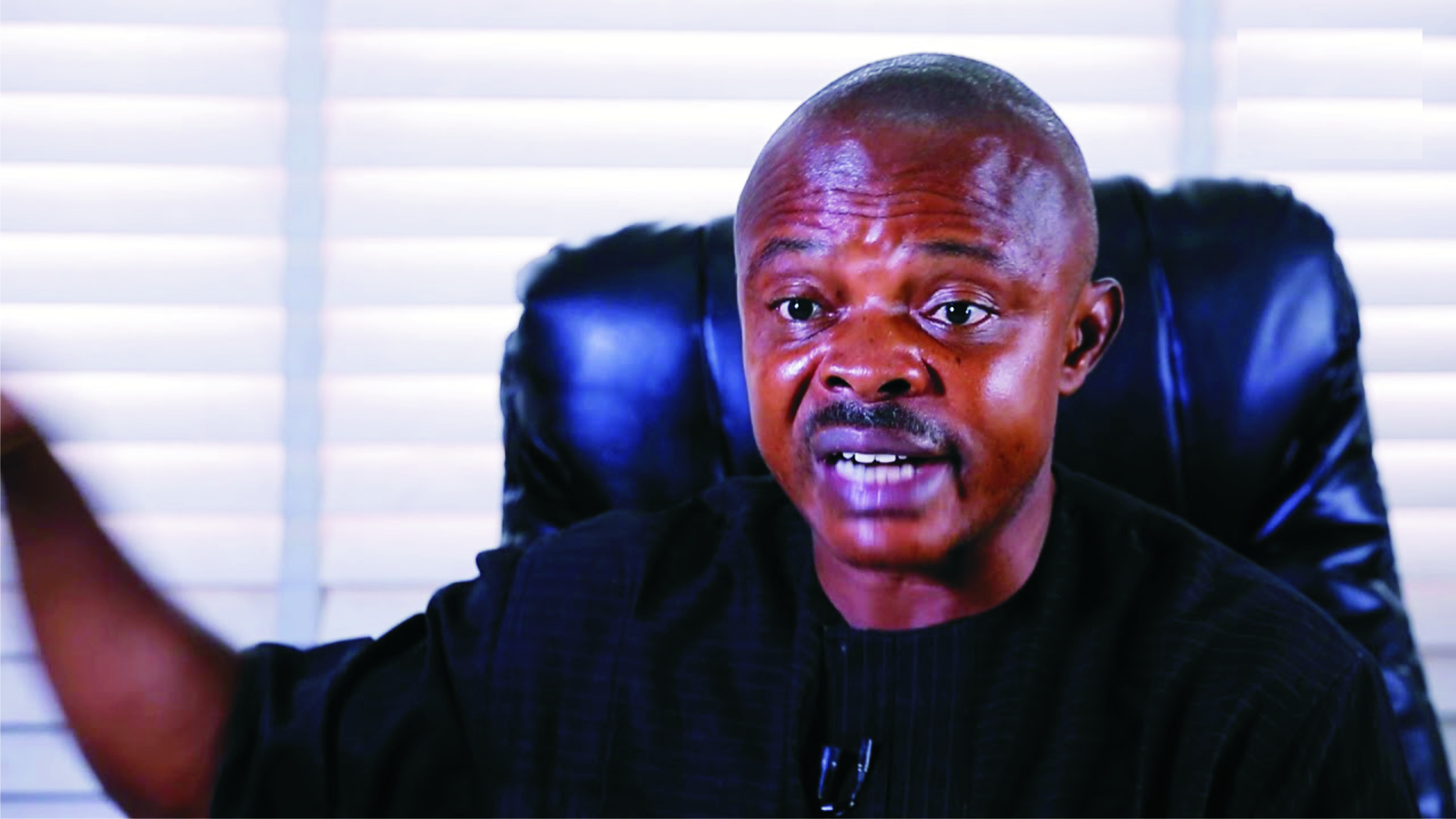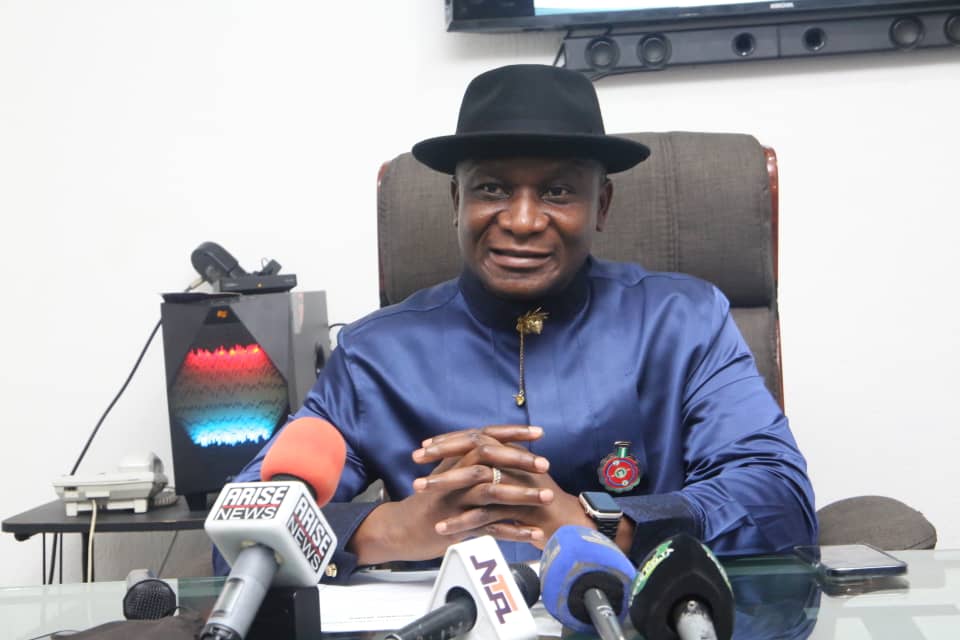News
‘Rivers Monorail Project On Course’: As Semenitari Debunks Reports …On Lassa Fever Deaths
The Rivers State Government says its monorail project is still on course despite speculations that the project has been abandoned.
The commissioner for Budget and Economic Planning, Mr Gogo Levi Charles who said this yesterday in Port Harcourt during the break-down of the 2012 budget also said that the first phase of the project will be extended to the Waterlines junction.
Charles said that the administration is also determined to complete all ongoing projects within the fiscal year.
He said that the government intends to pursue the provision of potable drinking water, and the construction of the model secondary schools of which six have been completed, while the on-going construction of model primary schools will be completed.
The commissioner also said that government would complete the 250-bed mother to child hospital, while the Rivers State University of Science and Technology (RSUST) will not only be relocated to its new site, but will be transformed into a world class university.
The commissioner said that agriculture will be given its pride of place in the scheme of things with the development of the oil palm initiative, while massive road rehabilitation and construction will be vigorously pursued.
Mr Charles said that the 2012 budget which is N23billion higher than that of 2011 is predicted on a benchmark of $60 dollars per barrel of crude oil.
Improvement in federation allocation to the state owing to the return of some oil wells to the state as well as improvement in internally- generated revenue owing to the relocation of NLNG corporate headquarters to Port Harcourt.
While stressing that the board of internal revenue is being computerized to ensure efficient service delivery, Mr Charles said that the government also intends to cut down on its administrative cost this fiscal year.
Meanwhile, the Rivers State Government has denied reports that the state recorded 48 deaths from lassa fever.
Commissioner for Information and Communications, Mrs Ibim Semenitari who said this yesterday in Port Harcourt, during the 2012 budgets breakdown briefing , said that only one death was recorded in respect of Lassa Fever in the state.
Mrs Semenitari said that the state Ministry of Health has setup medical teams to deal with lassa fever in all government heath centres.
She said that government has upgraded the Gokana Water Scheme, while the Ataba Water Project has been completed, noting that the effort of the government in the provision of water to the people of the state has attracted the assistance of the World Bank.
The commissioner also said that the ban on the sale of fuel in jerry cans is to reduce scarcity of the product in the state.
The state Commissioner for Information, Mrs Ibim Semenitari, told newsmen yesterday in Port Harcourt that the decision was not aimed at hurting any specific group of people in the state.
Our correspondent reports that last month, the state government banned the sale of fuel in jerry cans in the state to check the activities of some petrol stations.
Semenitari explained that some filling stations refused to sell fuel to cars and preferred to sell in jerry cans to make more money, adding that the policy was aimed at stopping what was going on at the petrol stations.
‘’ A situation where filling stations refused to sell petroleum products to cars and were selling only in jerry cans so that they could re-sell at a premium to road users, we found to be unacceptable”.
‘’ And, we have to sometimes take decisions that will benefit the majority of the people and that decision meant that needed to stop the sale of petroleum products in jerry cans to enable cars get petrol.
‘’ It is not meant to be a long term policy. It is an intervention to change what was going on.’’
The commissioner said the state government had tried to reduce the incidence of fuel scarcity in the state.
She said the Commissioner for Energy and Natural Resources had been monitoring the loading of petroleum products from various depots and fuel tank farms in the state.
She said government was determined to ensure that major road projects in the state were completed on schedule.
News
May Day: Labour Seeks Inclusiveness In Policy-making

The Organised Labour yesterday, called on the Federal Government to ensure inclusiveness in policy making and guide against erosion of rights, such as free speech and association.
The President, Nigeria Labour Congress (NLC), Mr Joe Ajaero made the call at the 2025 Workers’ Day celebration held at the Eagle’s Square, Abuja.
The Tide source reports Ajaero and the President, Trade Union Congress, Mr Festus Osifo delivered a joint statement on behalf of the organised labour at the event.
Ajaero described May Day as, not only a moment to honour workers’ sacrifices, but also a platform to demand justice and accountability from those in public office.
He frowned at the alleged suppression of protests, and the erosion of rights of workers by some agents
According to him, workers have a duty to resist economic injustice, insecurity, and policies that undermine their dignity.
Speaking on the theme of the day, the NLC President underscored the need for Nigerian workers to reclaim the civic space and resist policies that contribute to worsening economic conditions.
“Our theme this year – “Reclaiming the Civic Space in the midst of Economic Hardship – reflects the urgent need for citizens to protect democracy and push back against repression.
“The civic space, where Nigerians express their concerns and challenge injustices is shrinking.
“If we fail to reclaim this space, the foundation of our democracy risks collapse,” he said
Ajaero, therefore, urged workers to unite and resist division, fear, and despair.
He also urged them to mobilise and organise for change, declaring that the right to demand better conditions is non-negotiable.
“Without workers, there is no society; without labour, there is no development. We must take our place in the fight for economic justice and democratic governance.”
Speaking in the same veins, Osifo said workers are the backbone of the nation—the educators, healthcare providers, builders, farmers, and innovators who sustain its economy -.
He stressed the need for the labour to reclaim the civic space even in the midst of economic hardship.
News
2025 UTME: JAMB Disowns Site Requesting Payment From Candidates

The Joint Admissions and Matriculation Board (JAMB) has disassociated itself from a fraudulent site requesting payments from candidates who missed the ongoing 2025 Unified Tertiary Matriculation Examination (UTME).
The board said that the site, “Copyrightwriter Personal J Rescheduling Flw” and account number 8520641017 at Sterling Bank, associated with it, are scam.
The disclaimer is contained in a statement made available to newsmen in Abuja on Thursday by the Board’s Public Communication Advisor, Dr Fabian Benjamin.
Benjamin said the account is being exploited to defraud unsuspecting candidates who missed their UTME.
“We issue this urgent notice to inform the public about this nefarious scheme targeting candidates who were unable to participate in the UTME.
“Some unscrupulous individuals are deceitfully soliciting payments of N15,700 under the false pretence of offering rescheduling services for the examination.
“Let us be unequivocal: this, it is a blatant scam, and we are confident that the public will not fall prey to such cheap and regressive tactics.
” The individuals behind this scam have no affiliation with JAMB or any legitimate government agency.
“The account details provided in these communications are entirely fictitious and bear no connection to any official processes; they exist solely for the purpose of perpetrating fraud,” he said.
Benjamin called on Sterling bank to take immediate and decisive action against this criminal activity.
According to him, JAMB has reported the matter to the relevant security agencies and actively pursuing those responsible for this deceitful act.
He further said that “JAMB does not reschedule examinations for candidates who miss their scheduled tests due to reasons unrelated to the Board’s actions”.
He, however, said that the Board is conducting a thorough investigation for candidates whose biometrics failed during verification and were thus unable to sit for the examination.
He said those without discrepancies would be invited to retake the examination at no cost , stressing that “no cost is required”
“It is imperative to understand that JAMB does not charge any fees for examinations after a candidate has completed their registration.
“We strongly urge all candidates to remain vigilant and not to succumb to these fraudulent schemes.
“Protect yourselves and report any suspicious activity immediately,” he explained.
News
NDDC Seeks UN’s Support To Accelerate Niger Delta Development

The Niger Delta Development Commission (NDDC) has expressed its willingness to partner with the United Nations (UN) to accelerate the development of the Niger Delta region.
Dr Samual Ogbuku, Managing Director of the NDDC, made the appeal in a statement issued by the commission’s Director of Corporate Affairs, Mrs Seledi Thompson-Wakama, in Port Harcourt on yesterday.
According to the statement, Ogbuku sought the UN’s support during his visit to the UN Resident and Humanitarian Coordinator (UNRHC), Mr Mohammed Fall, at the UN regional office in Abuja.
He called on the global body to provide the NDDC with technical assistance and expert services to support the region’s development.
“We are eager to collaborate with the UN, recognising that the state governments in the region and the NDDC alone cannot achieve the level of regional development required,” he said.
Ogbuku identified key areas where support would be needed, including the provision of portable and affordable drinking water powered by high-tech solar energy sources.
He also highlighted the importance of reforesting the mangrove swamps, which have been severely damaged by decades of environmental degradation caused by oil exploration in the Niger Delta.
“Although the NDDC has made progress in providing solar-powered streetlights across the region, we still require UN support in delivering solar energy solutions for residential buildings.
“We also wish to explore the possibility of installing solar mini-grids in homes across communities, which would boost local commerce and trade,” he added.
The NDDC managing director further appealed for increased UN involvement in areas such as healthcare, education, youth training, gender development, and food security.
Ogunku stated that such interventions would significantly enhance the standard of living in the region.
In response, Fall affirmed the UN’s readiness to collaborate with the NDDC to fast track development in the Niger Delta.
He assured that the UN would support initiatives in food security, job creation, education, and renewable energy, among other areas.
“We aim to approach development in the Niger Delta holistically, rather than focusing solely on environmental pollution.
“This is merely an entry point; however, the UN’s development vision aligns with the Sustainable Development Goals (SDGs), which are designed to positively impact various aspects of people’s lives,” Fall stated.
He assured the NDDC of continued and fruitful engagements to drive the region’s development.
-
City Crime5 days ago
Europa League Will Not Save Our Season – Man Utd
-

 News5 days ago
News5 days agoWalson-Jack Salutes Civil Servants’ Dedication On Workers’ Day
-
Business5 days ago
TTP Trains Customs Agents, Freight Forwarders On Eto App
-

 News4 days ago
News4 days agoAdeleke Approves N4bn Bond To Clear Pension Arrears
-
Rivers5 days ago
LG Boss Targets Education Reforms, Others
-

 Politics5 days ago
Politics5 days agoKano Gov Approves N15.6bn To Settle Ex-APC Councillors’ Entitlements
-
Sports5 days ago
UCL: Henry Calls For Return Of Away Goals Rule
-
News5 days ago
UK-Nigeria Partnership Strengthened To Combat Fraud

